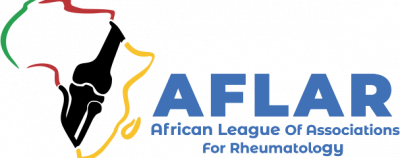
The Action Plan has been developed by the IFMRS and its member societies, and is the result of many rounds of discussion involving a very broad range of stakeholders from across the world.
It provides a framework for tackling some of the biggest challenges facing the musculoskeletal community as regards education, knowledge-sharing and collaborative working, and contains links to a wide range of key resources, including the IFMRS Knowledge Network.
Please read the Action Plan and look at the resources at the end, and consider how you could help take forward some of the recommendations, either individually or through our society. Do also please share it more widely with your own contacts. We as a society will also look at ways in which we can help take forward the recommendations, working with the IFMRS and other partners to help build a global, collaborative and equitable community of learning.

Our 2020-2023 Strategic Plan (CLICK) rests on three pillars: Network, Knowledge and Influence. These represent the key areas in which we are advancing musculoskeletal (MSK) research together with our member organizations.
The IFMRS 2021-23 strategic plan highlights the use of digital communications and digital platforms to engage and share knowledge with an increasingly broad and diverse global audience.
Our member organizations come from all over the world and represent all aspects of MSK research, from basic to clinical, covering the full spectrum of MSK conditions, from rare diseases to osteoporosis and from inflammatory diseases to osteoarthritis.
The International Federation of Musculoskeletal Research Societies (IFMRS)
Our mission is to advance musculoskeletal research globally in order to prevent and treat musculoskeletal diseases by collaborating with international societies to share resources, raise public awareness and provide education.
The IFMRS
Knowledge Network
The IFMRS Knowledge Network brings together key resources for individuals and organizations in the MSK research field.

Virtual library
Toolkits, guidelines policy documents and more on a broad range of topics from across the musculoskeletal (MSK) community.

MSK Knowledge Portal
The platform is an open-access resource that aggregates, integrates, analyzes, and displays omic results relevant to musculoskeletal (MSK) traits and diseases.

HubLE
The HubLE is the IFMRS Online Learning Environment for young investigators in the musculoskeletal (MSK) field.
Consensus Statement
of the International Musculoskeletal (MSK) Research Community On The Importance of MSK Research
Musculoskeletal (MSK) conditions have a huge and well-documented impact on both population health and global health economies, as well as on the ability of people everywhere to remain healthy, independent, productive and mobile. This carries an enormous financial and socio-economic cost to societies across the globe. For the many millions of people living with MSK conditions around the world, this means living in often significant, sometimes chronic and sometimes debilitating pain. Despite this, MSK conditions continue to be universally under-recognized and under-prioritized in national and international health strategies, domestic policies and funding arrangements, relative to their cost and impact. As a result, MSK research also remains widely under-recognized and under-resourced.
MSK research – encompassing basic, clinical and translational – is essential in understanding the nature of MSK conditions and therefore identifying the best ways in which to treat and manage them at both individual and population level. It allows for the development of increasingly effective treatments, both clinical and pharmacological, capable of preventing the onset of symptoms and disease progression, of alleviating of pain and enabling the maintenance or return to mobility. MSK research generates the knowledge which underpins all informed, effective efforts at successfully dealing with the huge and growing burden of MSK conditions worldwide. Recent/ongoing research has demonstrated that MSK conditions are in fact foundational to many other widespread and serious conditions, by identifying the many and sometimes strong links which many MSK conditions have with cancer, diabetes, strokes, cardiovascular disease and others. Often MSK conditions provide risk factors for other widespread conditions, particularly strokes and diabetes. Effectively addressing MSK conditions provides an important platform for alleviating and managing many others including wider health issues such as obesity, and for preventing or mitigating the impact of traumatic events such as fragility fractures, all of which affect a large percentage of any population.
Above all, MSK conditions must be regarded as a priority by all health systems, both nationally and internationally, in a way that is commensurate with their actual cost and impact, as clearly demonstrated by the Global Burden of Disease studies in particular. The WHO, and international regional governmental organizations such as the EU, have a key role to play in setting strategies and priorities which recognize and address this. The international health community must focus more attention on developing comparative studies on the impact of MSK relative to other conditions, and identifying solutions capable of amplified impact. The study, prevention and treatment of musculoskeletal conditions and injuries should be among the leading health concerns in the minds, actions and funding priorities of policy makers, health providers and the public. If national and international funding bodies and health services embark on the necessary strategies, a society where the prevention, treatment and care of people with musculoskeletal disorders is of a high standard and consistently accessible is possible. This would give people the freedom to move without pain and be independent.
The IFMRS, together with its member organizations, is leading efforts to improve knowledge-sharing and joined-up working at a global level and across the spectrum of MSK research. The Global Alliance for Musculoskeletal Health’s report Towards a Global Strategy to Improve Musculoskeletal Health provides an excellent overarching framework for action. Platforms such as the MSK Knowledge Portal and HubLE represent unique and ground-breaking initiatives to easily access knowledge in MSK research and to engage MSK researchers from across the world, including early career researchers and researchers from low and middle-Income countries, in a growing and thriving multidisciplinary community. These efforts must however be matched by clear policy priorities and tangible commitments from governments and funding bodies to invest in MSK research and MSK education, and must have the proactive and visible backing of governments across all their communications channels.
Membership & Affiliation
Membership of the IFMRS is open to all incorporated, independent,
non-profit musculoskeletal research organizations.
The IFMRS also welcomes applications for affiliate membership from
any organization which has an interest in the field of musculoskeletal research.
Newsletter Signup
Keep up to date with the latest news and activities from across our community.
Our newsletter goes out every 2 months
Corporate Partners
Our corporate partners support the IFMRS in delivering our Strategic Plan. There are three different levels of support, in addition to project-specific opportunities for partnership working.

Kyowa Kirin is an R&D-based life sciences company with special strengths in biotechnology.
The Kyowa Kirin Group companies strive to contribute to the health and well-being of people around the world by creating new value through the pursuit of advances in life sciences and technologies.
Kyowa Kirin Healthcare Professional Website | Kyowa Kirin Website




